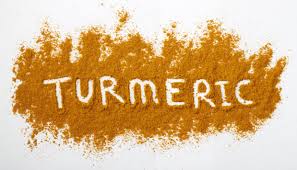Haldi – The Multi-benefit Spice of Life
- Health
- Posted at: 7:13 am
- December 8, 2014
As one of India’s most widely used spices, haldi (or turmeric – that is, Curcuma longa) – is a herbaceous plant which is part of the ginger family. It is a plant the versatility which makes it useful for culinary and medicinal purposes. It has wide-ranging befits with few side-effects. What’s more, for centuries, haldi has been also used as a beauty product.
The three major forms of Haldi are:
1. Powder – Prepared after washing and oven-drying the turmeric rhizome, it is ground into a fine golden-yellow powder. In small quantities, this powder is added to foods for taste and often only for colour. When added during the initial stages of cooking, haldi imparts its unique colour and flavour to the preparation.
2. Whole rhizome – Sometimes, haldi is used as a whole rhizome. Available as a pickle that is slow-cooked with spices to keep it soft, haldi imparts a delicate flavour to the pickle.
3. Haldi leaves – These are also used in cooking, especially in oriental cuisine.
Benefits of Haldi Although there is no scientific proof of many of these benefits, anecdotal evidence has shown that haldi possesses them, and almost every day more are being discovered. Haldi’s health benefits are many – most of them related to its medicinal use. Rich in anti-oxidants, it is extremely useful in managing a number of different clinical conditions. Research has demonstrated haldi to offer the following benefits:
• Arthritis – Haldi is believed to help treat osteoarthritis by reducing swelling and inflammation.
• Problems with digestion – like excessive gas, diarrhoea, stomach aches, and a sensation of excessive bloating. It is commonly prescribed as a natural remedy for these purposes.
• Liver disease and gall bladder problems. Patients of such diseases develop jaundice, and haldi has been shown to reduce this, though without scientifically backing.
• Chest diseases such as the common cold, bronchitis and chest infections.
• Certain kinds of cancer management – Haldi has been shown benefit in patients with prostate and some forms of blood cancer.
• Alzheimer’s disease and depression – Though haldi does not cure Alzheimer’s disease, it has been shown to help slow down the progression of this debilitating condition.
• Menstrual problems – Because haldi is believed to have an effect on uterine contractions it can help treat problems during menstruation.
• Infections – Haldi helps as a topical application on cuts, bruises, wounds, and burns, besides helping to prevent infections and promote healing.
Side-effects of Haldi :
Overall general evidence indicates that haldi can be safely used as a medicinal product and also consumed. Though a few people report a mild stomach upset and occasional diarrhoea, this is usually sensitivity to haldi rather than side-effects.
However, haldi must be used with caution in pregnant women, as it is believed that it affects the uterine wall. By preventing blood clotting, it can cause bleeding. Thus, it should be avoided if the patient is undergoing surgery. It is due to this side-effect that haldi should be avoided in patients who are taking blood thinning medication since it can result in excessive bleeding in case of an injury or ulcer in the stomach. Finally, since there is information that haldi may interfere with some drugs used in chemotherapy, those who are undergoing chemotherapy should consult with doctors on taking curcumin.
Haldi Dosage :
To manage different clinical conditions, evidence suggests the use of 500mg of haldi four times a day for stomach problems and 500mg twice a day for managing patients with osteoarthritis is helpful.
Tags: amazing benefits of haldi, benefits of haldi, Haldi, health tips, uses & advantages of haldi










Free Piano
Your home is valueble for me. Thanks!?This website is mostly a stroll-via for the entire info you wanted about this and didn’t know who to ask. Glimpse here, and you’ll undoubtedly discover it. Free Japan